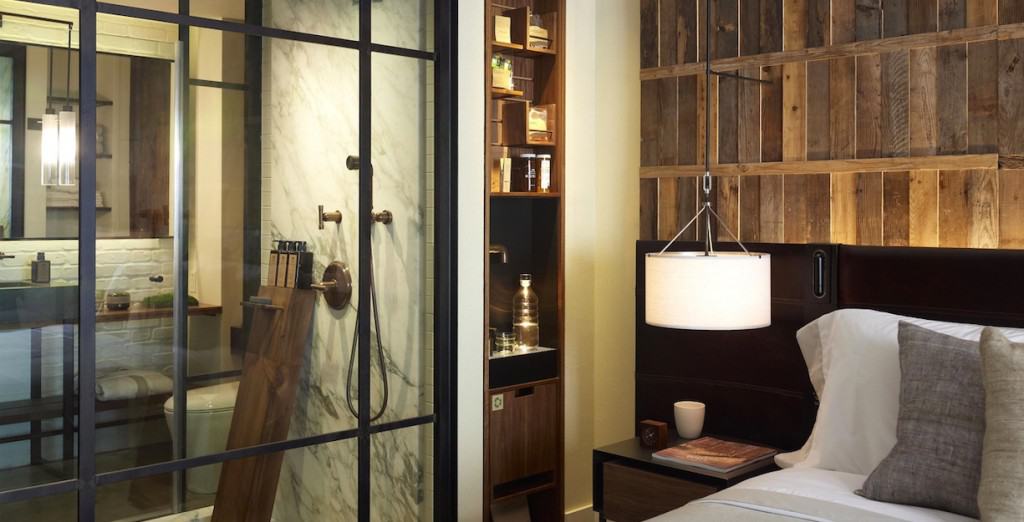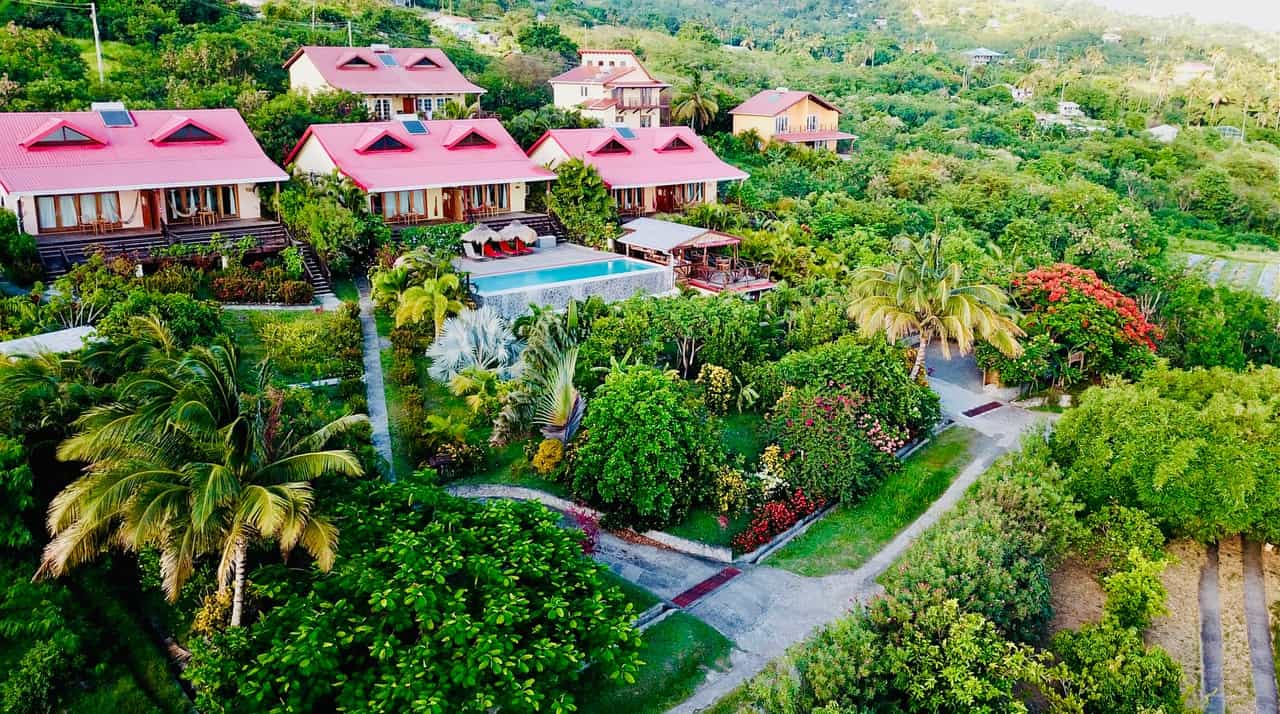The below feature was written for LE Miami ahead of the event taking place 7th-12th June, see the guestlist here.
The contemporary travel industry is no stranger to evolution, with hotels perhaps showing their greatest spirit of rebellion through powerful and engaging design in the early 80s in New York. The patriarchs Ian Schrager and André Balazs are largely credited for shaping the industry’s landscape, and not without good reason. These two names created a movement by simply understanding what the key drivers of the market were: brand promise, product, design and psychographics.
But just as the nameless, faceless hotels of the pre-André and Ian era evolved into what we herald today as contemporary travel, the space has become wildly competitive and traits such as ‘brand ethos’ and ‘design narrative’ have become not only aggressively used terms, but trademarked and registered assets. The race to adapt to the next zeitgeist movement within the hotel scene has been raging for some years now. Behind the curtain there are rumours and rhetoric of colourful and flamboyant designs and manifestos from hotel giants and independents alike, all composed to garner a buck or two.
It’s in these turbulent times that we begin to philosophise over the much simpler narratives of relevance, sincerity and honesty. In today’s hotel world a good, old-fashioned point of view will get you further than a starchitect or fashion house designer: form and function have never been more at the forefront. Today’s travellers are better conditioned to cut through disingenuous brands because we’ve endured years of design over function and brand without substance, leaving us yearning for the more basic pleasures of authenticity and cultural significance, but done well.
From real estate developers to brand architects, the desire and passion to contribute to the hotel scene has never been so hotly contested. But as we progress through today’s era, what is it that we hold so dear and who is walking the walk?
1 Hotels is a nature-inspired lifestyle group. Launching in 2015, they address the eco-friendly movement by strictly working with partners who reflect their own ethos – Seamus Mullen and Tesla are amongst the pack. Recently their South Beach, Miami site launched followed by Central Park, New York – and of course, Brooklyn follows in November and then the world. Keep watch: they refer to themselves as not a brand, but a cause. Being more sensitive towards the environment is a sentiment that runs throughout external architecture and internal hotel operations. Instilled in their make-up, inspired by the eco-sensitivity of Denmark and Holland, the group is on a mission to engage audiences and use the hotel proposition as a vehicle of environmental education. Driving home their purpose, events at the hotel will centre on a cultural programme featuring the likes of science workshops, farmers markets and wellness sessions.
Crafted by the original visionaries of Viceroy Hotel Group, The Kor Group – who practically wrote the book on affable luxury – have engineered the soon-to-be-launched Proper Hotels. The simple premise being bringing back the glory days of a grand hotel, where all walks of life would meet, mingle and interact with one another. It is a concept that graciously transcends terms like hipster, corporate traveller and Gen-Y and replaces them with the perhaps more ‘traditional’ pre-design hotel era. Bucking the trend of targeting one demographic profile, this group are interested in psychographics, less influenced by appearing hip, and more concerned about the interactions that take place within their portfolio of hotels, including San Francisco, Austin and Hollywood. There is a quiet reserve and subtle undercurrent here that invokes likeability and purpose. Proper Hotels are not only bringing back the timeless emotion of a grand hotel and meshing it with modern culture, but also elevating the design narrative to incorporate and accentuate today, and perhaps in a true act of rebellion, yesterday also.
The man who bought you Hotel du Vin and founded The Pig Hotel, Robin Hutson is a dab hand at creating fun and engaging experiences. Each of his hotels is located just outside a rural town. But don’t let this fool you: their branding, positioning and marketing is just as powerful a gateway city hotel, if not more so. If you’ve ever wondered how the hotel design revolution touched and translated into provincial England, look no further: The Pig is the first and last word on provincial hotel theatre, comfort and service. Tagged as “really a restaurant with rooms”, the hotel is shabby-chic affording you comfort, accessibility and pigs. Yes, each hotel has two pigs and much-loved Hunter wellies for each guest. The restaurant offers a “garden to plate” philosophy. Ingredients are grown onsite by the Chef. This is likely the most relevant of all rural life hotels. The level of sincerity found here is amplified by the no-nonsense country life mentality.
Sydell Group are the chaps who bought you The Line in LA, The NoMad in NY and Freehand in Miami, Chicago and Los Angeles. Each of their hotels has successfully addressed a credible trend, movement and cultural happening. The Freehand challenges the hostel market; The Line takes into account Korea Town’s burgeoning popularity with the extremely talented creator of the gourmet Korean taco truck Kogi, Roy Choi, at the helm; and The Nomad is a response to the under-utilised no-man’s-land neighbourhood in which it resides. Sydell make fun, intriguing hotels that capture the imagination and offer an insight into what will be new and next for today’s lifestyle-educated market. Each of their hotels creates a sense of location and architecture, whilst understanding and celebrating fresh talent within hotel, retail, food and beverage markets. Their most recent project, The Saguaro with locations in Scottsdale and Palm Springs, offers “uncomplicated fun with a splash of technicolour”. Sydell’s distinguishing promise is identifying and collaborating with opinion-formers and creating statements in previously undernourished neighbourhoods, achieved by fundamentally understanding the cultural dynamic of their locations.
Taking the various narratives and brand differentiators into account, there’s substantial evidence indicating that a point of view that addresses or creates a societal shift or consciousness will always triumph over ill thought-out design or brand strategy. The true crux of creativity is found within the spirit and soul of any brand experience. Many folks said that Alex Calderwood’s greatest ability was being able to see around corners and have a keen sense of what’s coming next. Trend analysis is important, but perhaps of paramount significance for today’s market is simply sincerity and honesty. In defining what evolution and rebellion means to contemporary travel today, one could argue that it has rebelliously matured into promise, cause and purpose.
1hotels.com
sydellgroup.com
thepighotels.com
properhotel.com
This article was written for LE Miami









